Senior Sergeant Steve Horn retires: Sydney life as a forensics investigator on the beat
IN ONE week, retiring forensics investigator Steve Horn responded to five murders in a row as the sole crime investigator, including a fatal fire at the Downunder Hostel in Kings Cross.
True Crime
Don't miss out on the headlines from True Crime. Followed categories will be added to My News.
IT had been hours since the bushfire ripped through the home south of Sydney but Detective Senior Sergeant Steve Horn’s boots melted when they hit the brickwork.
At the back of the property in Jannali was a pool and Pauline Mary O’Neil’s body was nearby. She died trying to seek shelter from the fast-moving bushfire with her two children in January, 1994.
“They tried to come out to the garage, where the car was, and there were wall to wall flames in front of them,” Detective Horn, a senior crime scene investigator, recalled.
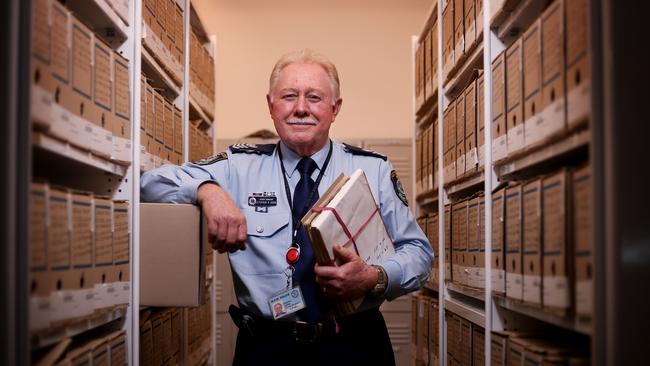
“They went back inside and heard everything cracking around them. They went out to see where they could go and what they could do. (The father) picked up the garden hose and it collapsed in his hands.
“They all tried to get into the pool but the wife didn’t make it.”
Wearing two pairs of leather gloves to protect his hands against the searing heat, Detective Horn carefully examined the traumatic crime scene, one of hundreds he attended over an applauded and highly-respected policing career.
MORE NEWS:
Drug stats show cluster of ecstasy use
Man dead after horror BMW Sydney smash
Extreme airport measures to track sex traffickers
That 50-year-old career will come to an end today when Detective Horn — who colleagues described as “legendary” — walks out of The Curtis Cheng NSW Police Headquarters for the last time.
The 69-year-old is seen as a master of his craft, someone who was at the forefront of forensic work before DNA solved crimes and fingerprints were still taken with ink and paper.
Detectives sighed relief when he turned up at their crime scenes as he had an rare ability to remain calm among the chaos.
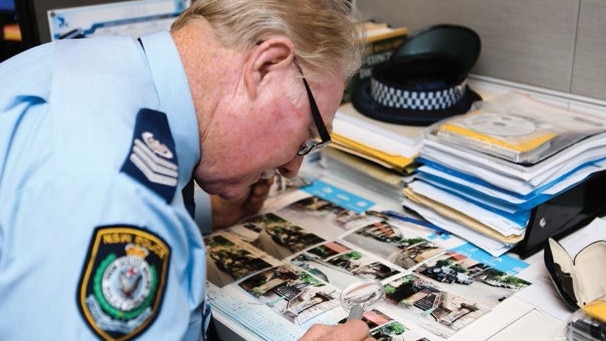
“The scene will talk to you if you know how to do your job properly, the scene will tell you something,” Detective Horn said on the eve of his retirement.
“The body will tell you something. You go to the post mortem and it will tell you something about how the crime was committed and you can put all that information together.
“Who else is going to speak for the deceased? It’s the crime scene people and the investigators.”
Name a high-profile case in NSW over the past four decades and odds are, Detective Horn has been involved; the 1980s Family Law Court bombings, the 1981 Sylvania Heights nursing home fire that left 16 people dead, the search for the body of gang figure Raphael Joseph and countless sexual assault investigations.
He pulled bodies out from underneath twisted metal and concrete slabs after the 1977 Granville train disaster and identified the victims of the Kempsey bus crash in 1989.
The nature of the work is harrowing. The job involves photographing dead bodies, analysing graphic murder scenes in minute detail and listening to victims painfully describe their attackers’ faces in order to create a COMFIT.
Detective Horn started off in scientific investigation in 1974 as a police artist, skills he furthered studying drawing, including during one eye-opening live art class, and jewellery design at technical colleges.
In 1991, he was selected for the War Crimes Prosecution Unit and travelled to the Ukraine to find and exhume mass graves. The Federal Government had information that hundreds of Nazi war criminals were hiding in Australia and Detective Horn’s work would assist with their prosecution.
“We were mainly looking for 18 or 20 people who were taken from a village not too far away by Russian police officers who had collaborated with the Germans,” Detective Horn remembered.
“They weren’t sure whether these kids were Jews or not but they took them up there and disposed of them and buried them in the mass grave.”
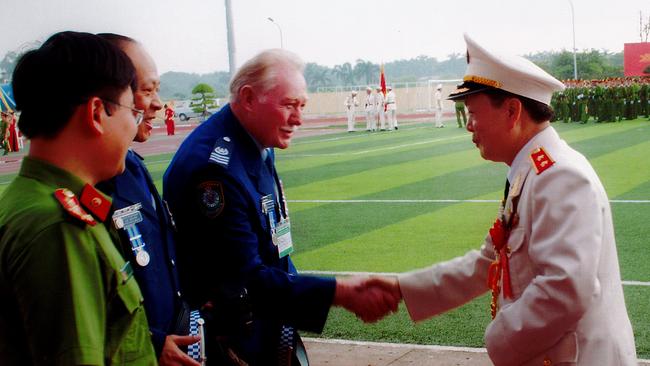
The Australian Police Medal recipient remembers finding a mass grave with the skeletons of children on top of another grave containing adults. There was a teenage soldier with bits of leather from his boots still stuck to their bones and a corroded belt buckle on his pelvis.
Decades of exposure to death and tragedy would leave anyone vulnerable to post-traumatic stress disorder but Detective Horn will walk out of the job unscathed.
“Surviving”, he jokes, is his biggest achievement.
“A lot of people ask me how have I’ve done it for so long and part of it is, I enjoy the type of work and I know there is going to be another job I have to go to after that,” he said.
Not to say the job has come without sacrifice. He was often away from home for days at time, travelling from crime scene to crime scene between apologetic calls to his wife.
“I owe a lot to my wife to standing by and allowing me to take this role up,” he said.
“When I have interviewed young staff coming in it’s a question I have always asked, whether they be male or female — how is your husband or your wife?
“How are they going to feel with the phone going off all the time?”
In one week in the 1980s, he responded to five murders in a row as the sole crime investigator, including a fatal fire at the Downunder Hostel in Kings Cross.
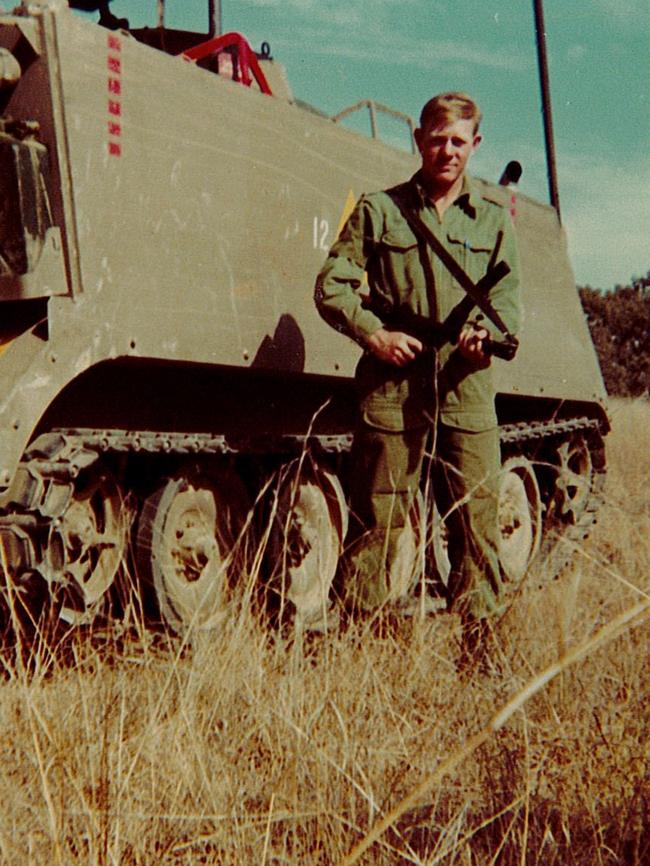
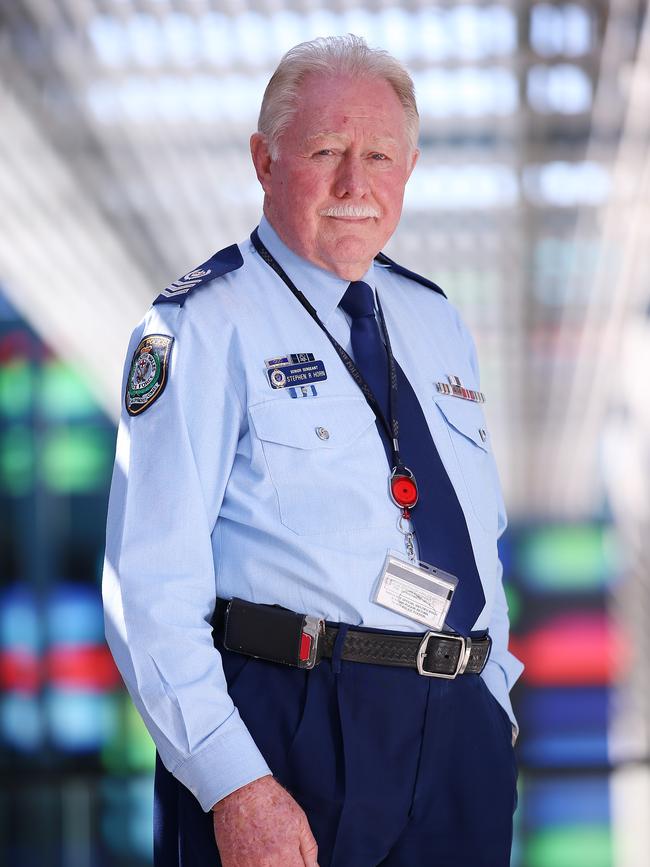
In 2008 he joined the Cold Case Justice Project, which used modern-day forensic technology to solve dozens of historical sexual assault cases and murders.
Despite his unrivalled experience in forensic work and his statesmanlike reputation in the force, Detective Horn emanates humility.
Luckily his colleagues are more than happy to boast for him.
At a farewell ceremony at police HQ this week, Homicide Squad Detective Chief Inspector Gary Jubelin described him as an “absolute legend” who had no idea of the regard detectives across the state had for him.
Detective Horn worked with Jubelin’s team most recently in the search for Matthew Leveson’s body in the Royal National Park.
Detective Horn joined the police force in 1968, inspired by a pact to join the cops that his father and a mate made after finding a dead body in a backstreet in Surry Hills.
Detective Horn’s father didn’t follow through but his mate did and became the Detective Inspector Mr Horn sought advice from before signing up.
With the Vietnam War in full swing, Detective Horn had a hunch he would be called up for National Military Service. Weeks before his “jungle training” was due to begin, the last of Australia’s troops were pulled out of Vietnam and Detective Horn happily returned to his career in policing.
With retirement in sight, Horn, a father-of-two, is looking forward to spending more time kayaking with his granddaughter.
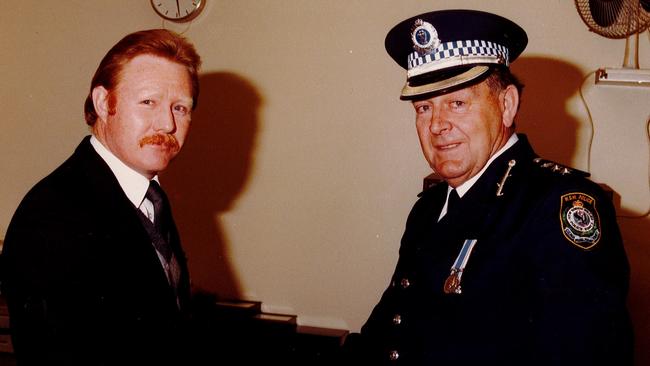
Originally published as Senior Sergeant Steve Horn retires: Sydney life as a forensics investigator on the beat



